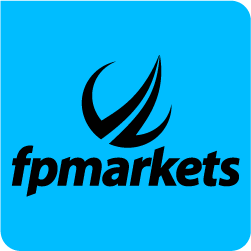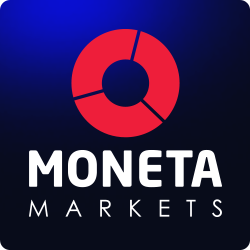Best Regulated Brokers in 2025
The most important factor in choosing a Forex broker is regulation. Regulated brokers work under the supervision of reputable financial regulatory bodies that ensure they adhere to high standards designed to protect traders from fraud, mismanagement, unethical practices, and forex scams. Not only will trading with regulated brokers make traders' capital more secure, but it will also lead to a more fair and transparent environment.
The foreign exchange market is one of the world's largest and most liquid financial markets, attracting a mix of credible and fraudulent brokers. In an unregulated environment, traders can be defrauded by scams or swindles, poor trading conditions imposed on them, or even capital loss. Regulations establish requirements that will ultimately serve to safeguard the trader.
Each region has a regulatory body, which imposes its own set of rules on brokers under its jurisdiction. For example, among the most reputable regulators are the CFTC (Commodities Futures Trading Commission) in the United States, the FCA (Financial Conduct Authority) in the UK, and the ASIC (Australian Securities and Investments Commission) in Australia. Knowing these differences in regulation can help traders choose the best broker for their needs.
List of best regulated brokers in 2025
In 2025, traders are prioritizing brokers with robust regulatory compliance to ensure secure and transparent trading experiences. Below is a list of some of the best regulated brokers offering competitive conditions and strong oversight.
FP Markets: Reliable trading with strong regulatory oversight
FP Markets is a globally trusted broker, renowned for its commitment to transparency and regulatory compliance. Regulated by authorities such as ASIC (Australia), CySEC (Cyprus), FSCA (South Africa), FSA (Seychelles) and CMA (Kenya), FP Markets provides traders with a secure and professional trading environment.
The broker offers access to over 10,000 tradable instruments, including forex, commodities, indices, and shares, making it a versatile option for traders of all levels. FP Markets supports MetaTrader 4 (MT4), MetaTrader 5 (MT5), cTrader and TradingView platforms, providing robust tools for technical analysis and automated trading. With tight spreads starting at 0.0 pip on Raw Accounts and lightning-fast execution, FP Markets is particularly appealing to scalpers and high-frequency traders.
Additionally, FP Markets’ focus on client education and support is evident through its extensive learning resources and 24/5 multilingual customer service, ensuring traders can access assistance whenever needed. The broker’s strong emphasis on compliance and client protection makes it a top choice for traders seeking regulated brokers in 2025.
Pros
Regulated by ASIC, CySEC, FSCA, FSA and CMA, ensuring high standards of security.
Access to over 10,000 tradable instruments.
Supports MT4 and MT5 for advanced trading.
Tight spreads starting from 0.0 pip with fast execution speeds.
Excellent educational resources and multilingual customer support 24/7.
Cons
Cryptocurrency offerings are more limited compared to competitors.
Higher minimum deposit requirements for premium accounts.
Moneta Markets: Simple, secure, and well-regulated
Moneta Markets has established itself as a reliable broker offering regulated and secure trading services. The broker is licensed under the SCA (UAE) and the FSCA (South Africa), ensuring compliance with international standards for financial security and client protection.
Moneta Markets provides access to over 1,000 tradable instruments, including Forex, indices, commodities, and shares. Its proprietary WebTrader and AppTrader platforms are designed for ease of use, featuring intuitive navigation and integrated charting tools. For traders seeking more advanced options, Moneta Markets also supports MetaTrader 4 (MT4) and MetaTrader 5 (MT5). With leverage of up to 1:1,000, the broker caters to traders of varying experience levels.
The broker’s swap-free Islamic accounts and local payment methods make it a preferred choice in regions like the MENA and Asia-Pacific. Moneta Markets’ commitment to education and multilingual customer support further enhances its reputation as a trader-focused broker. In addition, whenever you fund your live account with $500 or more, you get a 50% Cashback bonus.
Pros
User-friendly proprietary platforms and support for MT4/MT5.
50% Cashback bonus.
Offers swap-free Islamic accounts.
Competitive spreads and leverage up to 1:1,000.
Efficient account setup with localized payment methods.
Cons
Cashback bonus limited to Forex, Gold, and Oil trading, in accounts funded with at least $500.
Its proprietary platform lacks advanced tools for professional traders.
Educational resources are less extensive than some competitors.
Tickmill: Low-cost trading with reliable regulation
Tickmill is a trusted broker known for its competitive pricing and strong regulatory credentials. Regulated by leading authorities, including the FCA (UK), CySEC (Cyprus), and FSCA (South Africa), Tickmill prioritizes client security and transparency.
The broker offers tight spreads starting from 0.0 pips on Raw Accounts, along with some of the lowest commission rates in the industry. With leverage of up to 1:1000 for clients of Tickmill Ltd, it is suitable for traders with varying risk appetites. The broker offers Tickmill Trader, its proprietary platform available on both app and web. It also supports MetaTrader 4 (MT4) and MetaTrader 5 (MT5), providing robust platforms for technical analysis, automated trading, and fast execution.
Tickmill also caters to Muslim traders with swap-free Islamic accounts, ensuring Sharia compliance. Its commitment to education is reflected in its comprehensive learning resources, including webinars, tutorials, and market analysis. Tickmill’s focus on delivering low-cost and secure trading makes it an excellent choice for regulated brokers in 2025.
Pros
Regulated by FCA, CySEC, FSA and FSCA for high levels of security.
Tight spreads starting at 0.0 pips with low commissions.
Supports MT4 and MT5 platforms for advanced trading.
Offers swap-free Islamic accounts.
Comprehensive educational resources for all traders.
Cons
Limited range of instruments outside forex and major CFDs.
Customer support hours are not 24/7.
FXTM: A regulated broker with comprehensive offerings
FXTM is a well-established broker renowned for its strong regulatory framework and global reach. Regulated by leading authorities such as the FCA (UK) and the FSCA (South Africa), FXTM offers a secure trading environment for traders in various regions.
The broker provides access to a wide range of financial instruments, including Forex, commodities, indices, stocks, and cryptocurrencies, ensuring a diversified trading experience. FXTM supports popular trading platforms such as MetaTrader 4 (MT4) and MetaTrader 5 (MT5), delivering advanced tools for technical analysis, automated trading, and real-time market insights.
FXTM caters to traders of all experience levels, offering tight spreads starting from 0.1 pip, leverage up to 1:3,000 (depending on the jurisdiction), and extensive educational resources. Its localized payment methods and multilingual support further enhance its accessibility to global clients, making it a top choice for those seeking a regulated broker in 2025.
Pros
Wide range of financial instruments, including Forex and commodities.
Supports MT4 and MT5 platforms with advanced features.
Tight spreads starting at 0.1 pip and high leverage options.
Strong focus on education with webinars, tutorials, and market analysis.
Cons
Swap fees may increase trading costs for long-term positions.
Higher minimum deposits for premium accounts.
Cryptocurrency offerings are more limited than some competitors.
Octa: Accessible and regulated trading
Octa has earned its place as a reliable and accessible broker for all-level traders, particularly in regions like Asia, Africa, and Latin America. Regulated by the FSC (Mauritius), Octa provides a trading environment with a focus on affordability and user-friendly platforms.
The broker offers Forex, commodities, indices, and cryptocurrencies, providing a variety of options for traders seeking portfolio diversification. Octa supports the widely used MetaTrader 5 (MT5) platform, known for its advanced charting tools, automated trading options, and seamless user experience. In addition, Octa has its own set of platforms for computers, mobiles, and copy trading.
Octa is particularly appealing to beginner traders due to its low minimum deposit requirements, competitive spreads starting at 0.4 pip, and leverage of up to 1:1,000. Localized payment methods, swap-free Islamic accounts, and multilingual support make it a popular choice in regions with diverse trading needs. However, the broker’s regulatory framework may not satisfy traders seeking oversight from top-tier authorities.
Pros
Low spreads starting at 0.4 pip and leverage up to 1:1,000.
Supports the MT5 platform with robust features.
Accessible with low minimum deposit requirements.
Swap-free Islamic accounts for ethical trading.
Localized payment options and multilingual support.
Cons
Limited range of non-Forex instruments compared to larger brokers.
Alternative fees may apply to swap-free accounts.
Why are Forex brokers’ regulations important?
Regulation is important for maintaining the integrity of the foreign exchange market. It ensures that brokers operate in a transparent manner and in the best interests of their clients. Here are the most important reasons to explain why Forex broker regulations are needed.
Protection of client financial assets
Legitimate brokers are required to keep segregated accounts of client funds within their trading operational accounts.
This means traders' money is stored in separate accounts and cannot be used by the broker himself for personal purposes.
In the event that something goes wrong, the traders are protected by those accounts.
Fair dealing conditions
Regulated brokers are supposed to maintain fair trading practices, meaning that traders get the right price and the spreads and execution times are not manipulated. This ensures that the trading field is leveled for all.
Transparency and accountability
Regulatory authorities mandate that brokers deliver transparent and precise details regarding their services, associated fees, and terms of use.
Periodic audits and compliance assessments are performed to guarantee that brokers maintain responsibility for their conduct.
Dispute resolution mechanisms
In case of disputes, the regulated brokers must offer mediation or arbitration. This gives the trader an equal chance to win in the complaint with the help of a third-party process that is impartial.
How can I verify that a Forex broker is regulated?
Checking the regulatory status of a Forex broker is one of the most significant ways to ensure a safer trading environment. It consists of two simple steps: visiting the broker's official website and verifying the information from the relevant regulatory authority.
Check the broker's official website
Start the process with a visit to the official website of the broker. Genuine brokers proudly display their regulatory information, including the name of the regulatory authority together with their license or registration number.
This information can generally be found on pages marked as "About Us," "Regulations," or in the footer of the homepage.
Look for clear references to well-known and respected regulatory bodies, such as the CFTC, FCA, ASIC, or the like, depending on the geographical region.
However, just finding this information on the website is not enough to verify the legitimacy of the broker. Fraudulent brokers will often claim they are regulated or use fake license numbers, hence the need for the following step.
Check with the regulatory authority
To verify the broker's claims, cross-check the provided regulatory information against the official website of the regulatory body.
Most financial regulators have online databases where you can search for licensed entities using the broker's name or registration number.
The fact that the broker is not found in the database or the license details do not match is a red flag, which means you should avoid dealing with that broker.
Check for blacklisted brokers and trading sites
In addition to verifying a broker’s regulatory status, many regulatory bodies maintain lists of blacklisted brokers and trading platforms. These lists include entities that have been flagged for fraudulent activities, operating without proper licenses, or engaging in unethical practices. Checking these blacklists is an effective way to avoid potential scams.
The authorities regularly update their warnings about unregulated brokers or fraudulent websites targeting traders. These lists are easily accessible on their official websites and are worth reviewing before choosing a broker.
By cross-referencing a broker’s name or website with these blacklists, traders can protect themselves from falling victim to scams or unethical practices. If a broker appears on a regulatory blacklist, it is a clear warning sign to steer clear of their services.
What is the main regulatory body for each country?
Every country or state contains a financial regulatory body for heading Forex trading. Here are a few of the most well-known regulatory bodies:
- United States: Commodity Futures Trading Commission (CFTC) and National Futures Association (NFA).
- United Kingdom: Financial Conduct Authority (FCA).
- Australia: The Australian Securities and Investments Commission (ASIC).
- Japan: The Financial Services Agency (FSA).
- United Arab Emirates: Securities and Commodities Authority (SCA).
- South Africa: Financial Sector Conduct Authority (FSCA).
- Brazil: Comissão de Valores Mobiliários (CVM).
What customer protections do regulated brokers offer?
Regulated brokers are obliged to have in place measures that protect traders and encourage good practice. These protections include:
Segregated funds
As previously indicated, licensed brokers must keep client funds in segregated accounts. This preserves client capital from being misused, in addition to offering protection against the broker going bankrupt.
Negative balance protection
Many regulatory agencies require brokers to provide negative balance protection, which ensures that traders can't lose more money than they have deposited. This buffer is especially important when using leveraged trading.
Transparent charges
Top regulated brokers are required to disclose all costs and fees associated with trading operations, including spreads, commissions, and overnight financing. Such transparency allows traders to make informed decisions while avoiding hidden costs.
Remuneration structures
Some regulatory agencies even make it mandatory for brokers to be members of compensation schemes like the Financial Services Compensation Scheme (FSCS) in the UK. This gives traders the assurance that, in case the broker goes bankrupt, they can claim their money back up to a certain amount.
What are the dangers of unregulated brokers?
Trading with unregulated brokers comes with a lot of risks that may result in financial losses or even full-blown fraud. Here are the main risks associated with trading with unregulated brokers.
No deposit protection
Unregulated brokers are not obliged to segregate client funds, meaning that your money could be used for the broker's operations or even misappropriated with no way to get it back.
Risk of fraud
Unregulated brokers, if not supervised, can begin cheating by means of price manipulation, delayed withdrawals, or even direct scams. Many traders have lost their investments to such fraudulent operators.
No legal recourse
In the event of a dispute with an unregulated broker, traders have little to no legal recourse.
Regulators mediate and resolve disputes. However, these services are unavailable when dealing with unregulated entities.
Hidden fees and inferior trading conditions
Unregulated brokers often lure traders by claiming the existence of low fees or high leverage; they, however, usually fail to offer fair trading conditions. The common problems include hidden charges, poor execution, and large spreads.
Data security risks
Unregulated brokers may not establish stringent data security policies, and your personal and financial information may get hacked or misused. To avoid these risks, always trade with a regulated broker who is bound by strict compliance and transparency rules.
Conclusion
Regulated brokers are the backbone of a safe and fair trading experience, offering traders safeguards such as segregated funds, transparent pricing, and availability for dispute resolution.
Trading with brokers regulated by established and respected regulatory bodies reduces risks and allows traders to focus on their objectives. Always check the regulatory status of a broker before opening an account, and avoid unregulated entities to ensure your investments in the Forex market are protected.
FOREX BROKERS FAQs
How to choose a Forex Broker?
When choosing a Forex broker, it is crucial to look beyond surface-level features and consider comprehensive data sets provided by various brokers. The following key factors should be evaluated:
Trading Platform and Execution: Assess the reliability, speed, and functionality of the trading platform. Look for features such as customisable interfaces, advanced charting tools, order execution speed, and mobile trading app availability. Analyse historical data on platform performance, including uptime, latency, and order execution times.
Asset Offering and Market Coverage: Examine the range of tradable assets and market coverage offered by each broker. Evaluate data sets on available currency pairs, commodities, indices, and cryptocurrencies. Consider factors like liquidity, spreads, and overnight financing rates across different asset classes.
Regulatory Compliance and Security: Review data sets related to regulatory compliance and security measures implemented by brokers. Check for licences from reputable financial authorities and adherence to strict regulatory standards. Assess the broker's track record regarding security breaches, data protection measures, and client fund segregation.
Trading Costs and Fee Structures: Analyse fee structures, spreads, commissions, and hidden charges associated with trading. Compare data sets on bid-ask spreads, overnight financing rates, deposit/withdrawal fees, and inactivity fees across different brokers. Consider the overall cost of trading, including transaction costs and funding expenses.
By thoroughly analysing these factors and comparing the offerings of different brokers, you can make an informed decision and find a forex broker that aligns with your trading objectives, preferences, and risk tolerance.
How to know which Forex broker is the best?
To determine the best Forex broker, it is essential to compare data sets across various brokers and tailor your selection to your personal needs.
The best top-tier brokers will have a very wide range of tradable assets, good liquidity providers, STP (straight through processing), low spreads, fees, and commissions.
They will have full regulatory compliance with reputable authorities, strong security measures, data protection, and fund segregation.
Deposits and withdrawals will be fast, and the interface easily navigated.
By thoroughly comparing the data sets covered, you can identify the Forex broker that best meets your trading objectives and personal needs, ensuring a well-informed and tailored decision.
What is Forex trading?
Forex trading, also known as foreign exchange trading, is the act of buying and selling currencies on the foreign exchange market with the aim of making a profit. It is one of the largest and most liquid financial markets globally, with a daily trading volume exceeding $6 trillion.
At its core, Forex trading involves speculating on the relative value of different currencies. Traders aim to profit from fluctuations in exchange rates between currency pairs, such as EUR/USD or GBP/JPY. The Forex market operates 24 hours a day, five days a week, allowing traders to engage in trading activities at any time.
Forex trading is also a loose term for CFD trading. CFD is short for ‘contract for difference’ and is the method of speculating on the underlying price of an asset, like shares, indices, commodities, cryptos as well as currencies.
Forex trading offers advantages, including high liquidity, low transaction costs, and the ability to trade on leverage, which allows traders to control larger positions with a small amount of capital. However, it also carries risks, so traders should carefully consider their risk tolerance and trading strategies before entering the market.
Is Forex profitable?
Forex trading has the potential to be profitable for traders who possess the necessary knowledge, skills, and discipline. However, it is essential to understand that forex trading is not a guaranteed way to make money, and success should never be taken for granted.
The profitability of Forex trading depends on key factors, including market conditions, trading strategy, risk management, and individual trader psychology. While some traders may experience significant profits, others may incur losses. It is crucial to approach Forex trading with realistic expectations and a well-defined trading plan.
One of the advantages of Forex trading is its high liquidity, allowing traders to enter and exit positions with ease. Additionally, the ability to trade on leverage can amplify profits, but it also increases the potential for losses. Effective risk management is essential to protect capital and ensure long-term profitability.
Whether Forex trading is profitable for an individual trader depends on their ability to analyse the market, implement a sound trading strategy, and manage risk effectively.
Success in Forex trading requires continuous learning, adaptability, and discipline. While it can be profitable, it is not without risks, and traders should be prepared to face both profits and losses in their trading journey.
Brokers featured in this article may have paid for placement. While we maintain editorial independence and carefully evaluate all options, featured companies in Branded articles compensate us for inclusion. Here's an insight into how we make money. While we strive to be comprehensive, the compensation we receive can influence the products, companies, or services we showcase and review. Not all available options may be featured on this page.









